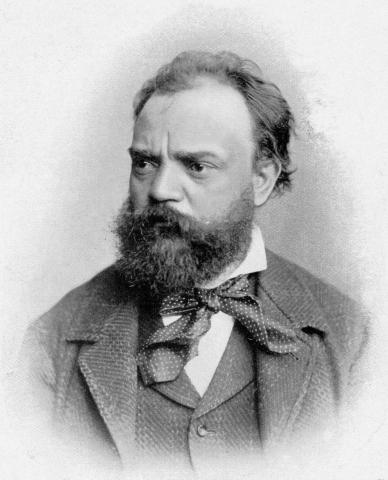You are here
Dvořák's Joyous Symphony No. 8
Czech composer Antonin Dvořák was born in 1841 in Nelahozeves (near Prague) in the Austrian Empire. The oldest of 14 children, Antonin’s upbringing in Nelahozeves nurtured his strong Bohemian heritage, which so strongly influenced his music. Dvořák took organ, piano, and violin lessons and at the young age of 14, composed the Forget-Me-Not Polka in C in 1855.
When Dvořák turned 33 in 1874, he was mostly still unknown as a composer outside of Prague. His life would change forever that year when he won the Austrian State Prize for composition. The jury for the competition included Johannes Brahms. Among Dvořák’s work submitted for the competition were his third and fourth symphonies. Brahms was "visibly overcome" by the "mastery and talent" of Dvořák.
During the summer of 1889, Dvořák started sketching ideas for his Eighth Symphony at his country house in Vyoská. Ideas came to him so quickly that he complained about not being able to get them down fast enough. He quickly finished the symphony’s sketch between September 6 – 23, and completed it on November 8 in Prague.
In Symphony No. 8, some of Dvořák’s most gorgeous melodies are on full display. While there are occasional dramatic outbursts, Symphony No. 8 is a pastoral world filled with Bohemian folk melodies that influenced much of Dvořák’s work. Dvořák’s time in the countryside clearly influenced this exuberant piece as there’s a feeling of the sheer joy of being alive in the natural world.
Listen carefully for bird-call melodies in the energetic first movement. The second movement brings contrasting moods – a dialogue between light flute and clarinet calls feels pastorale, and although brief shadows present themselves in a stirring fashion, the tranquility of a summer day prevails! As you hear the trumpet fanfare in the finale, just remember the words of conductor Rafael Kubelik: “In Bohemia, the trumpets never call to battle – they always call to the dance!”
